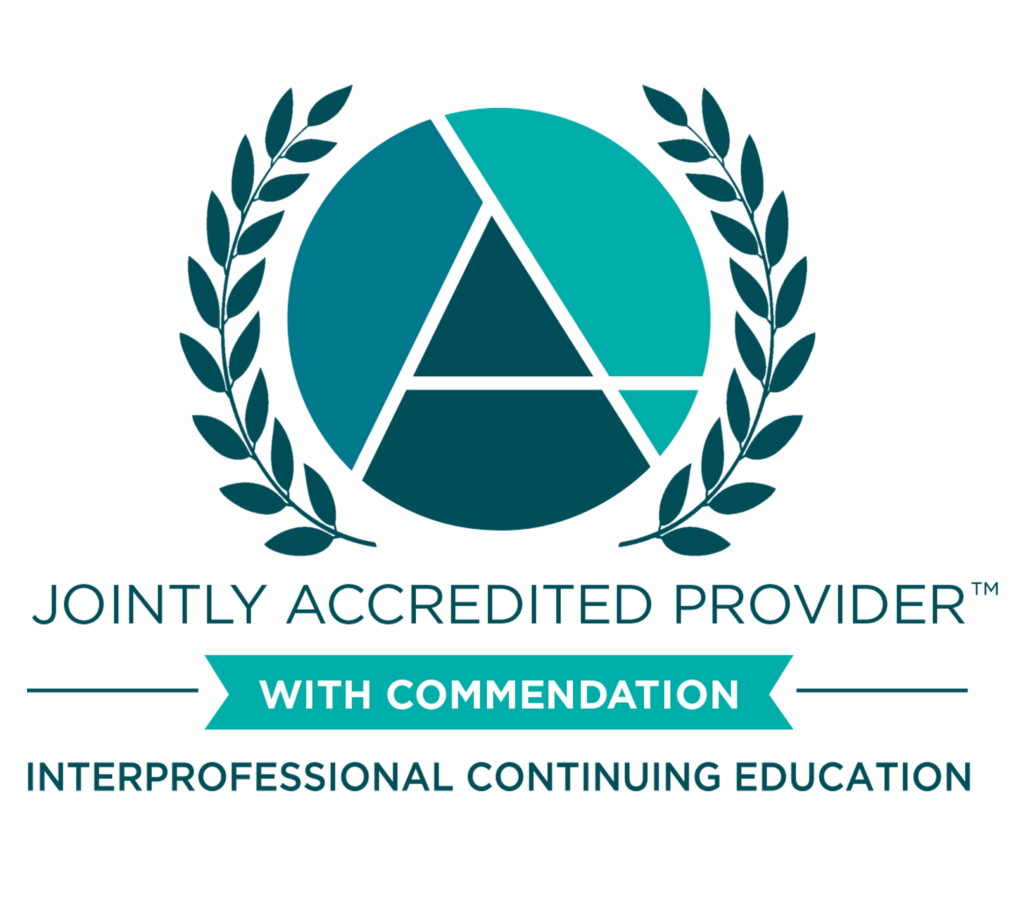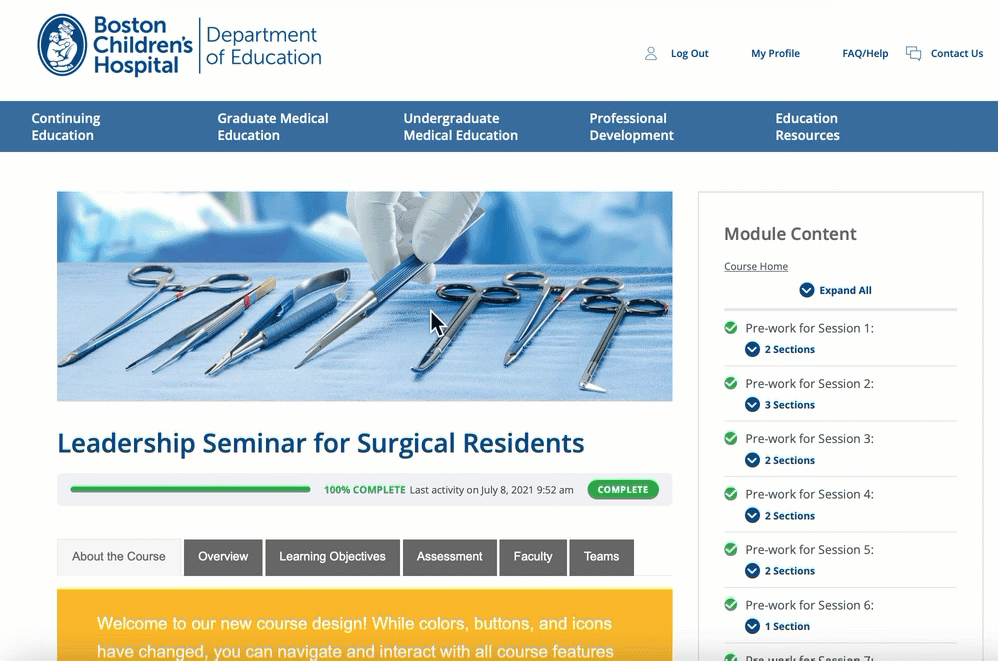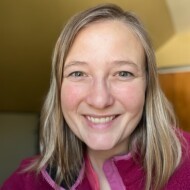
LIVE VIRTUAL: HOPE – Healthy Outcomes from Positive Experiences (10/1/2025)
Current Status
Price
Get Started
Course Credit
The following credits are available for this course:
| AMA PRA Category 1 Credits™ (MD, DO, NP, PA) | 5.0 hours |
| Contact Hours (Nurse) | 5.0 hours |
| ASWB ACE Continuing Education Credits (Social Worker) | 5.0 hours |
(Note: a course evaluation is required to receive credit for this course.)
Overview
Our training on the HOPE (Healthy Outcomes from Positive Experiences) framework aims to transform how we approach supporting children and families. The core objective is to demonstrate the profound impact of Positive Childhood Experiences (PCEs) on fostering healthy development, even in the face of challenging situations like Adverse Childhood Experiences (ACEs). We offer practical strategies to address difficult issues through the “Four Building Blocks of HOPE”: secure relationships, stable environments, active community engagement, and opportunities for emotional growth. You’ll learn how to immediately apply these positive, strengths-based concepts in your daily work, shifting focus from problems to actively boosting resilience and promoting positive development in children and families.
This training is designed for anyone working with children and families, including teachers, healthcare professionals, social workers, community leaders, and government officials. By participating, you’ll gain a deeper understanding of what truly helps children thrive and acquire actionable methods to facilitate those positive experiences. You’ll leave with practical tools and concepts for integrating the Four Building Blocks of HOPE into diverse scenarios, from individual conversations to policy development. This interactive, in-person training encourages reflection and sharing in both large and small group settings, allowing you to actively discuss how these principles apply directly to your own professional practice.
Course Format
This training is designed for anyone working with children and families, including teachers, healthcare professionals, social workers, community leaders, and government officials. By participating, you’ll gain a deeper understanding of what truly helps children thrive and acquire actionable methods to facilitate those positive experiences. You’ll leave with practical tools and concepts for integrating the Four Building Blocks of HOPE into diverse scenarios, from individual conversations to policy development. This interactive, in-person training encourages reflection and sharing in both large and small group settings, allowing you to actively discuss how these principles apply directly to your own professional practice.
Learning Objectives:
At the conclusion of this educational program, learners will be able to:
- Recognize the differences between HOPE and ACEs
- Realize how HOPE can and should be a priority for EVERYONE
- Describe the critical necessity of working from a strength-based lens with patients, clients, children, and families

In support of improving patient care, Boston Children’s Hospital is jointly accredited by the Accreditation Council for Continuing Medical Education (ACCME), the Accreditation Council for Pharmacy Education (ACPE), and the American Nurses Credentialing Center (ANCC), to provide continuing education for the healthcare team.
Physician
Boston Children’s Hospital designates this live activity for a maximum of 5.00 AMA PRA Category 1 Credits ™. Physicians should claim only credit commensurate with the extent of their participation in this activity.
Nurse
Boston Children’s Hospital designates this activity for 5.00 contact hours for nurses. Nurses should only claim credit commensurate with the extent of their participation in the activity.
Social Work
As a Jointly Accredited Organization, Boston Children’s Hospital is approved to offer social work continuing education by the Association of Social Work Boards (ASWB) Approved Continuing Education (ACE) program. Organizations, not individual courses, are approved under this program. State and provincial regulatory boards have the final authority to determine whether an individual course may be accepted for continuing education credit. Boston Children’s Hospital maintains responsibility for this course. Social workers completing this course receive 5.00 ACE CE continuing education credits.
Disclosures
Boston Children’s Hospital adheres to all ACCME Essential Areas, Standards, and Policies. It is Boston Children’s policy that those who have influenced the content of a CME activity (e.g. planners, faculty, authors, reviewers and others) disclose all relevant financial relationships with commercial entities so that Boston Children’s may identify and resolve any conflicts of interest prior to the activity. These disclosures will be provided in the activity materials along with disclosure of any commercial support received for the activity. Additionally, faculty members have been instructed to disclose any limitations of data and unlabeled or investigational uses of products during their presentations.
The following planners, speakers, and content reviewers, on behalf of themselves, have reported the following relevant financial relationships with any entity producing, marketing, reselling, or distributing health care goods or services consumed by, or used on patients:
| Name, Degree | Entity Name, or None |
Please see the FAQs below for common questions about how to work through a course. If you have a question or issue that is not addressed in the FAQ, please use this form to submit a help request, or if your issue is urgent, call the CME office at: 617-919-9908.
How do I navigate this course? There are two ways to access and navigate course content with the interactive table of contents: at the bottom of the main course page or in the sidebar on the right side of the page. Select the links in the table of contents to access the corresponding content. Depending on the course, access to content may be linear, in which case each content module or section can only be accessed if the prior ones are completed, or non-linear, in which case modules and sections can be accessed in any order. Use the breadcrumbs at the top of any course page to orient yourself within a course, or return to a previous course section or the main course page. How do I claim credit? If the course has been accredited, available credits will be displayed on the course home page. Select only those credits that apply to your profession, and click/tap “Apply Selection.” You may make your selection at any point while you are taking the course, or after you have completed it. How do I download a certificate? There are two ways to view/download your certificate: from within the course or from the course listing under your profile (select the document icon). In either case, you must have selected at least one available course credit type to generate a certificate. How do I view/print my transcript? You must be logged in to view your transcript. Select My Profile at the top of the page. If you do not see the transcript selector, be sure the Courses tab is selected. Select the type of credit and dates to include in your credit report. To include all credits from all time, leave the options blank. Select Download Transcript to view/download your transcript. Note each credit type in your transcripts starts a new page. How do I request a refund? Please email the CME Department to request a refund.How do navigate this course?

How do I claim credit for this course?
How do I download a certificate?
How do I view/print my transcript?
How do I request a refund?

